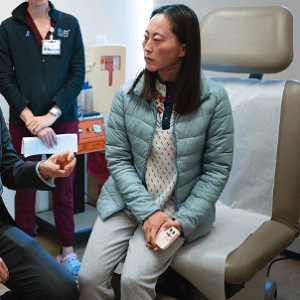Across the United States, Asian women are grappling with a little-known health crisis: high rates of lung cancer despite never having smoked. At the forefront of addressing this concern is the Mount Sinai Health System’s Asian Thoracic Surgery Program, which has taken on a new mission to diagnose, treat, and investigate a phenomenon officially termed never-smoking lung cancer. This disease disproportionately impacts Asian women, creating unsettling racial and ethnic health disparities that are only starting to receive national attention.
Researchers and clinicians at Mount Sinai report that their teams are encountering more cases of never-smoking lung cancer among Asian women than in any other population. These findings spur a sense of urgency; specialists are working to better understand why these lung cancers strike healthy, non-smoking women from minority communities. The increased focus has led Mount Sinai to expand services and support for Asian patients, aiming to push the field forward with more effective diagnostics and outreach.
This trend raises broader questions about risks that disproportionately impact minority communities—and whether current public health strategies are sufficient for populations where traditional behavioral risk factors do not explain outcomes. Medical leaders at the institution emphasize the need for culturally competent care and renewed investment in research to pinpoint causes and address these disparities, ensuring Asian women and other at-risk groups are no longer overlooked.
See: “Disproportionate Share of Asian Women Have Lung Cancer Without Smoking” (2025)


